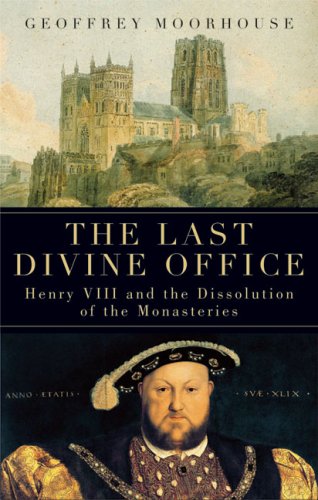The Last Divine Office: Henry Vlll and the Dissolution of the Monasteries
Beginning in 1536, claiming the loftiest motives, Henry VIII began the dissolution of the monasteries of England. As Geoffrey Moorhouse makes plain in this history, the king’s actions sprang far less from piety than from his desire to seize the religious houses’ wealth at a time when he nearly had run through his existing revenues. The king and his henchmen said that monks’ and nuns’ failures to live perfect religious lives justified their zeal for what was called reform. But the institutions that Henry attacked played important spiritual and economic roles in society, and their destruction caused great hardship, detailed in this book.
Nothing in the events Moorhouse recounts reflects well on Henry as a moral actor, but they reinforce our image of him as a ruthless and formidable king. The administrative apparatus he set in motion to investigate and pillage the religious houses was systematic in a way that strikes the reader as almost modern. Moorhouse makes use of new historical sources found in what was once a great Benedictine priory at Durham. The detailed portrait of monastic life is the most fascinating part of the book.










